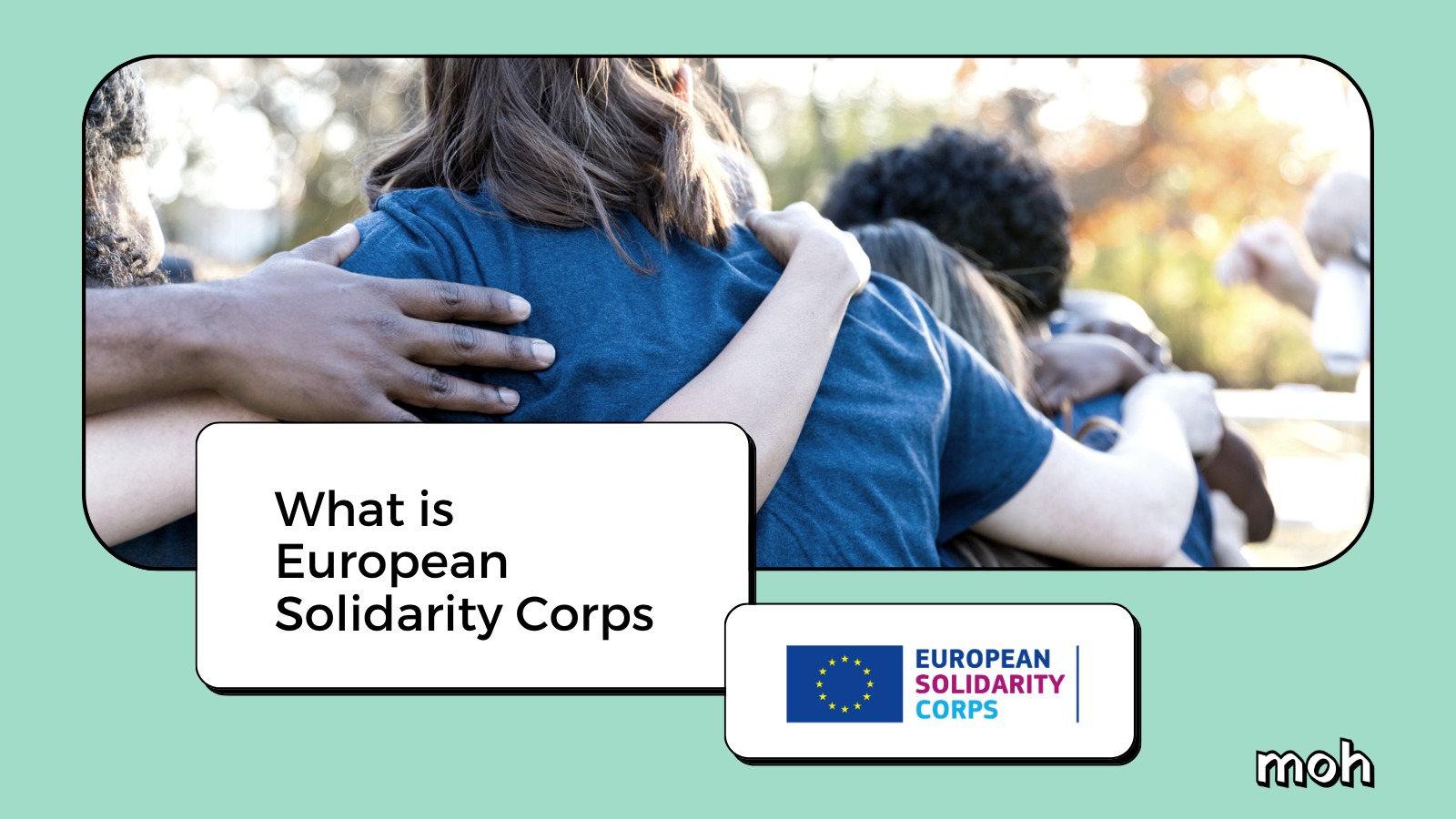
- What is European Solidarity Corps (ESC)?
- In what areas can a European Solidarity Sorps project be carried out?
- What costs are expected to take part in the European Solidarity Corps?
- Who can participate?
- Is there a certificate at the end of the project?
- How to take part in the European Solidarity Corps (ESC)?
- Useful resources
What is European Solidarity Corps (ESC)?
The European Solidarity Corps is an initiative of the European Union that allows all young people like you, between 18 and 30 years of age, to have a non-formal learning experience abroad or in their own country, for a duration between 2 weeks and 12 months.
(If you already know the European Voluntary Service, don’t worry, the European Solidarity Corps is its “updated” version, officially launched in December 2016).
During this period abroad, young volunteers have the opportunity to improve and acquire skills for their personal and professional development and also for their social integration.
In what areas can a European Solidarity Sorps project be carried out?
- Inclusion
- Reception and integration of refugees and migrants
- Citizenship and democratic participation
- Disaster prevention and recovery
Environment and natural protection
- Health and wellbeing
- Education and training
- Employment and entrepreneurship
- Creativity and culture
- Sport
What costs are expected to take part in the European Solidarity Corps?
One of the primary objectives of the project is to ensure close to zero expenditure for the volunteer.
In order to participate in the European Solidarity Corps all costs are covered: round-trip travel (respecting the maximum limit indicated), board and lodging, language course, health insurance, transport on site, visa (if required).
Each volunteer has the right to a so-called “pocket money” (pocket money) per month which varies according to the host country of the project.
A commitment of maximum 38 hours per week is expected.
Who can participate?
The only requirement to be eligible to take part in a European Solidarity Corps project is:
To be a young person between 17* and 30 years old resident in a country participating in the program.
*You may be 17 years old at the time of research and application for the project, however you must be at least 18 to be able to start participating in an activity.
A volunteer can only take part in a long-term ESC project. With one exception: those who have carried out an ESC/former EVS project for no more than 59 days can participate in another one.
Is there a certificate at the end of the project?
Yes. At the end of the European Solidarity Corps project, each volunteer receives a certificate confirming his/her participation, skills and description of his/her project: the Youthpass.
How to take part in the European Solidarity Corps (ESC)?
Good. Now the most important question.
If you want to take part in a European Solidarity Corps project, we advice you to subscribe to the Portal of the European Solidarity Corps. After doing so, you are automatically registered in the database and can then be selected by an organization and leave to participate in a project.
If an organisation contacts you and offers you a place for a project, you are not obliged to accept the proposal: the decision whether or not to participate in a project is entirely up to you.
In this program you can and should be proactive. Instead of waiting for an organisation to contact you, you can search (by country or project activity) for an organisation suitable for you and get in touch with it. Usually, you will be asked to send your CV and a letter of motivation.
Useful resources
- Mission and principles of European Solidarity Corps – European Youth Portal
- Frequently Asked Questions – European Youth Portal
- Benefits of European Solidarity Corps –European Youth Portal

